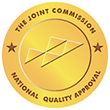The Twelve-Step Group is at the core of our addiction and substance abuse treatment program in our rehab center. The Twelve-Step Group is based on the guiding principles of twelve-step recovery programs, which have long been used to help people struggling with alcoholism, substance abuse and other chemical dependencies.
 At its essence, the Twelve-Step Group is about honesty, courage and supporting one another in recovery. Patients hear other’s stories and gain insights into their own behavior, overcome denial, connect with others and create a sense of community. In getting to know others who are in recovery, patients learn to ask for and receive help, hear other’s perspectives and ways of coping with cravings, triggers and stress that can lead to relapse, and are reminded that they’re not alone in their journey.
At its essence, the Twelve-Step Group is about honesty, courage and supporting one another in recovery. Patients hear other’s stories and gain insights into their own behavior, overcome denial, connect with others and create a sense of community. In getting to know others who are in recovery, patients learn to ask for and receive help, hear other’s perspectives and ways of coping with cravings, triggers and stress that can lead to relapse, and are reminded that they’re not alone in their journey.
How Does Addiction Impact Your Life?
It’s common for people struggling with addiction to minimize the extent of the addiction, the control alcohol and drugs has on their thoughts and actions, and the level of damage caused by the substance use.
One of the key elements of the Twelve-Step Group is creating a First-Step Inventory. The inventory is a written document created by each patient that reveals the full impact of addiction on their life, including:- When the disease of addiction or substance abuse robbed them of control over their life.
- How the disease of addiction had damaged their relationships, livelihood, health and well-being.
- How substance abuse has led to feelings of guilt and shame.
- Their current feelings of self-worth.
The process of creating a detailed, specific inventory helps patients identify and remove the denial fueling addiction, and helps patients understand the power of alcohol abuse or drug abuse has to turn people into someone they never meant to become. By being honest with themselves and with the group, patients can begin the process of healing.
Guided by a drug and alcohol treatment therapist, patients clearly view their destructive behaviors and the consequences, and gain awareness and respect for the power of the disease of addiction. They learn to recognize the character traits that led down the road to substance abuse. Traits could include isolating, or withdrawing from family and friends during times of emotional upset, anger issues, difficulty accepting help or a tendency to rationalize destructive behaviors. Armed with this awareness and compassionately supported by others in the group, patients gain the tools to change self-destructive behaviors.
How Spiritual Awareness Impacts Rehabilitation
 One theme of twelve-step therapy is faith in a higher power. Spirituality may take different forms for different people. For some, it’s a belief in God, prayer and participation in an organized religion. For others, it’s meditation and quiet reflection on the blessings of life, or the sense of awe that nature can elicit.
One theme of twelve-step therapy is faith in a higher power. Spirituality may take different forms for different people. For some, it’s a belief in God, prayer and participation in an organized religion. For others, it’s meditation and quiet reflection on the blessings of life, or the sense of awe that nature can elicit.
Spirituality, or the sense of being connected to something outside of yourself, is enormously powerful. Spirituality helps addicts in recovery feel thankful for the positive things that happen when living a sober life. This could be a simple as being able to get up in the morning feeling good, physically and mentally, or the ability to have positive relationships with family members with drugs and alcohol out of the picture. Spirituality can help people identify the meaning, or purpose, of their life. Having a purpose in life can help addicts in recovery find the strength and motivation to continue living a drug-free and alcohol-free life.
Spirituality is a positive attribute that can addicts in recovery can rely on to summon strength and resolve during times of temptation or stress. Communities formed around shared spirituality, such as church congregations, can also serve as a crucial source of support and fellowship for those in recovery.
One aspect of twelve-step therapy at our drug and alcohol rehab center is encouraging patients to identify and strengthen their spirituality, so that they can draw from it throughout their lifetime to maintain sobriety.



















